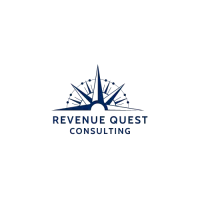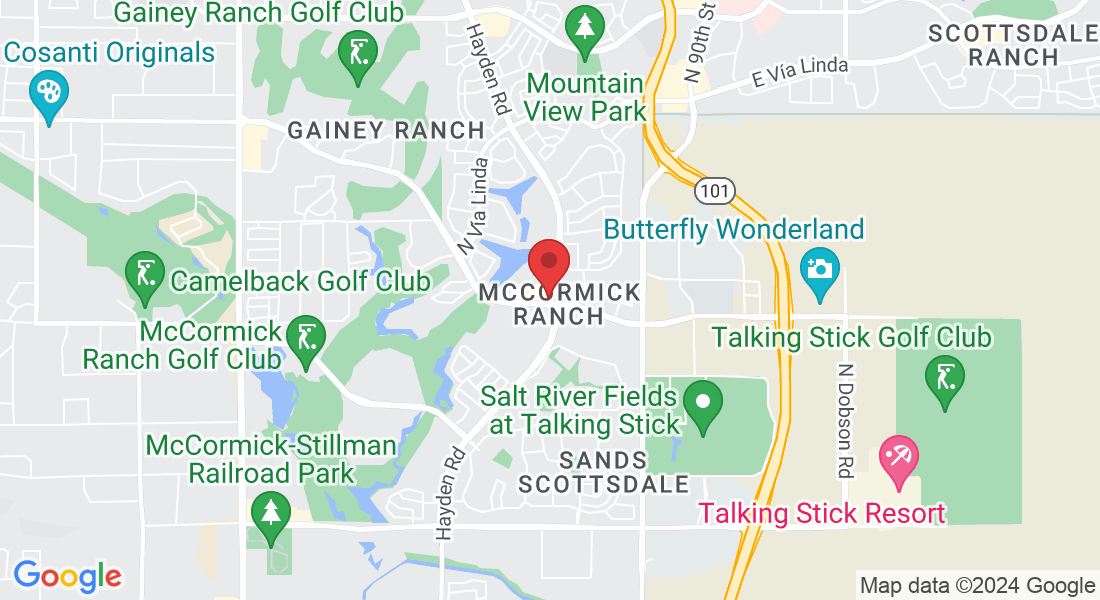What's Working Now to Drive Revenue & Business Growth...

Navigating the Digital Landscape: A Beginner's Guide to E-commerce for Small Business Owners
The world is rapidly changing, and so is the way businesses operate. With the advent of technology, the digital landscape has become a vital part of the business ecosystem.
As a business owner, it's crucial to have a solid online presence to survive in the increasingly competitive market, and e-commerce is one of the best ways to achieve this.
E-commerce allows you to reach a broader customer base and sell your products or services around the clock.
However, it can be daunting to embark on this journey without proper guidance.
In this article, we'll guide you through the basics of e-commerce and how to establish your small business online.
Choose Your Niche and Target Audience
If you plan to set up an e-commerce store, the first step is to determine your niche or product and target audience.
Identify the customer group you want to serve, their preferences and habits, and the products they are willing to pay for.
Once you clearly understand your niche and target audience, curating your store to their needs becomes more manageable.
You also need to research your competitors and see their customers' offers. Differentiate your store and offer unique products/services unavailable elsewhere. It will help you attract more customers and grow your business over time.
Starting an e-commerce store is not easy, but you can achieve significant success with the right approach and strategy.

Choosing the Right Platform
When setting up an e-commerce store, choosing the right platform is crucial.
Several e-commerce platforms are available, including Shopify, WooCommerce, Magento, and BigCommerce.
Each platform offers different features and pricing plans, so it's essential to evaluate your options carefully.
Features to consider include:
ease of use
scalability
payment gateways
customer support
It's also important to watch out for any limitations on your chosen platform. For example, some platforms may have a "lock-in," meaning that you may only be able to export your customer data if you decide to leave at some point.
A good strategy is starting with a simple platform and scaling up as your business grows. By researching and choosing the right platform, you can set your e-commerce store up for success and grow your business over time.
Build Your Online Store
After choosing the right e-commerce platform, the next step is to build your online store.
Your website is the face of your business, so it's essential to create a user-friendly and responsive website that customers can navigate quickly.
When designing your website, ensure it's visually appealing, and your product descriptions are unique and engaging. It will help to keep your customers engaged and interested in your products.
Optimizing your website for search engines is crucial to increasing your online presence and attracting more customers. It's essential to ensure that your website is easily accessible across devices and that the loading time is fast. It will help to improve your website's ranking on search engines and increase your visibility online.
Your checkout process should also be simple and secure, with multiple payment options. You'll increase customer satisfaction and reduce cart abandonment rates. By creating a seamless checkout process, you can ensure that your customers have a positive experience and are more likely to return to your store.
Choosing the right e-commerce platform and building a user-friendly website can set your online store up for success.
By optimizing your website for search engines and creating a seamless checkout process, you can increase your online presence and attract more customers to your store.
Setup Your Marketing and Promotion Strategy

Creating a marketing and promotion strategy is crucial to the success of your online store.
Once your website is up and running, it's crucial to drive traffic and sales to your store. One way to do this is by creating social media pages on platforms where your audience is most active. You can connect with your customers, promote your products, and build your brand.
Optimizing your website for search engines is also essential for attracting more customers. Using the right keywords and creating high-quality content can improve your website's ranking on search engines and increase your visibility online.
Developing a content marketing plan is another effective way to promote your online store. Include creating blog posts, videos, and other content relevant to your niche and target audience.
By providing value to your customers and establishing yourself as an expert in your field, you can build trust and loyalty with your audience.
Paid advertising, influencer marketing, and email marketing are other strategies that you can consider to promote your online store. These methods can help you reach a wider audience, build brand awareness, and drive more sales.
Creating a marketing and promotion strategy is essential to the success of your online store. By leveraging social media, optimizing your website for search engines, developing a content marketing plan, and considering paid advertising and other marketing methods, you can increase your online presence and drive more traffic and sales to your store.
Shipping and Payment Methods
Regarding e-commerce, shipping, and payment methods are crucial for you to consider.
Selecting a dependable shipping company that can guarantee your products' timely and secure delivery to your customers is crucial. It establishes a good rapport with your customers and encourages them to return for more purchases.
In addition to choosing a reliable shipping partner, you must offer multiple shipping options to cater to your customers' needs.
For instance, some customers prefer express shipping, while others are comfortable with standard shipping. By offering multiple options, you can cater to the needs of different customers and increase the chances of making a sale.
Regarding payment methods, credit cards are a standard option that most customers are familiar with. However, considering other payment options, such as PayPal or Apple Pay, is essential to make buying more accessible for your customers. These payment methods are convenient for customers and offer an extra layer of security, which can help build trust and credibility for your online store.
Ultimately, choosing the proper shipping and payment methods can significantly impact the success of your e-commerce business. By offering reliable shipping options and multiple payment methods, you can provide a seamless buying experience for your customers and increase the chances of making a sale.
Social Media and Online Marketing
Social media and online marketing are becoming increasingly important for e-commerce businesses.
With the rise of social media platforms, businesses need to create social media accounts and promote their products on these platforms. By doing so, businesses can reach a wider audience and increase their chances of making a sale.
Paid advertising on Facebook, Instagram, and Twitter is a great way to target potential customers. These platforms offer various targeting options that allow businesses to reach specific demographics based on age, gender, location, interests, and more. By using paid advertising, businesses can increase their visibility and drive traffic to their website.
Email marketing is another effective way to reach potential customers and drive traffic to your site. By collecting email addresses from your customers, you can send them promotional emails and newsletters that showcase your products and special offers. Keep your customers engaged and encourage them to make repeat purchases.
Search engine optimization (SEO) is also essential for e-commerce businesses. By optimizing your website for search engines, you can increase your visibility and drive more traffic to your site. Optimize your website, landing pages, content, meta tags, and images for the keywords your potential customers are searching for.
Finally, content marketing is a great way to drive traffic to your site and build your brand. By creating valuable content relevant to your target audience, you can position your business as an authority in your niche and attract potential customers to your site. It can include blog posts, videos, infographics, and more.
Social media and online marketing are essential for the success of e-commerce businesses. By combining social media marketing, paid advertising, email marketing, SEO, and content marketing, businesses can reach a wider audience, increase their visibility, and drive more traffic to their site.
Analytics & Monitoring
Setting up an e-commerce store is just the beginning of your journey.
Once your store is up and running, you need to monitor its performance and make improvements as required continuously. Ensure that your store is meeting your customers' needs and driving sales.
One way to monitor your store's performance is to use analytics tools. These tools can help you track important metrics like user behavior, traffic, and sales. By analyzing this data, you can identify areas where your store is performing well and areas where it could use improvement.
For example, if you notice that a particular product is selling well, you may consider promoting it more heavily or creating similar products to meet the demand.
Another critical aspect of running an e-commerce store is responding to customer feedback. Whether it's positive or negative, customer feedback can provide valuable insights into how your store is performing.
You can improve the overall customer experience and build a loyal customer base by listening to your customers and addressing their concerns.
Improve Product Offerings

Finally, it's vital to continually improve your product offerings to meet your customers' needs. Include adding new products to your store, improving the quality of existing products, or offering new features that enhance the overall customer experience.
By staying attuned to your customers' needs and adapting your store accordingly, you can stay ahead of the competition and continue to drive sales and growth.
Setting up an e-commerce store is the first step in a long journey. By continually monitoring your store's performance, responding to customer feedback, and improving your product offerings, you can build a successful and sustainable e-commerce business.
As a small business owner, I know how difficult it can be to grow your business and achieve financial prosperity. That's why I created the Small Business Growth Accelerator.
This program has been a game-changer for countless small businesses, providing them with proven blueprints, step-by-step frameworks, and support to accelerate revenue growth and achieve their goals much quicker and more reliably.
Download the One-Page Roadmap that is incredibly helpful in guiding your business growth decisions. If you're a small business owner, e-commerce entrepreneur, or startup founder (even if you're starting), download your free roadmap today, and check out the Small Business Growth Accelerator!

Revenue Quest Consulting
Revenue Quest Consulting helps small business owners, e-commerce entrepreneurs, and startup founders grow their revenue quickly and predictably without having to become a marketing expert, have a large advertising budget, or spending countless hours on social media engagement.
Explore, Lead, Succeed.
Let's work together to maximize your Revenue Growth Goals in 90 days or less!
© 2025 Revenue Quest Consulting - All Rights Reserved.

growth@revenuequestconsulting.com
(602) 345-1054
8390 East Via De Ventura F110
